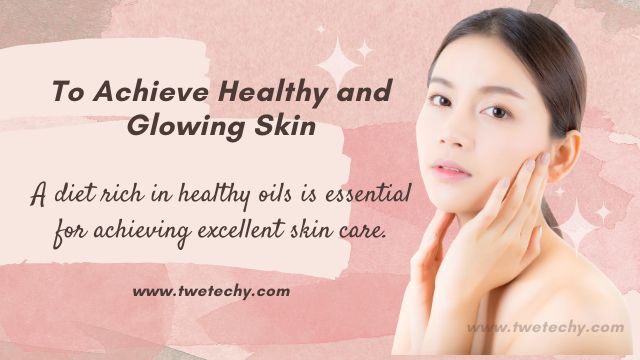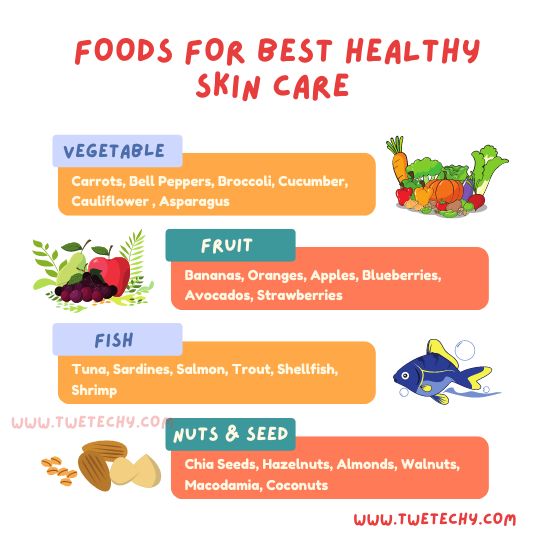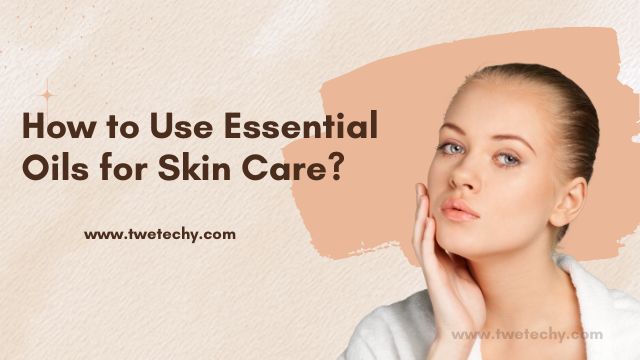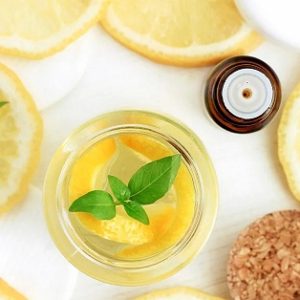Wellhealthorganic.com:diet-for-excellent-skin-care-oil-is-an-essential-ingredient: For many people, having beautiful, healthy skin is of the greatest value. While there are numerous skincare products on the market, maintaining a healthy diet can also do wonders for your skin. In addition, incorporating essential oils into your skincare routine can enhance the benefits of a healthy diet. In this blog post, we will discuss the importance of a proper diet and essential oils for excellent skin care.
Wellhealthorganic.com:diet-for-excellent-skin-care-oil-is-an-essential-ingredient
A proper diet is essential for achieving excellent skin care. Consuming foods rich in vitamins, minerals, and antioxidants can help to nourish and protect your skin. Leafy green vegetables, berries, nuts, and fatty fish are some of the best foods for glowing skin. These foods are rich in vitamins A, C, and E, as well as omega-3 fatty acids, which are all essential for maintaining healthy skin.
It is also important to avoid foods that can damage your skin, such as sugary and processed foods. These foods can cause inflammation in the body, which can lead to acne and other skin problems. Additionally, consuming too much alcohol and caffeine can dehydrate your skin, making it look dull and tired.
Finally, using oil in skin care can help to protect the skin from environmental damage. Many oils contain antioxidants, which can help to protect the skin from free radicals and other environmental stressors that can cause premature aging.
Oil is an important ingredient in skincare. It can help to moisturize the skin, regulate oil production, cleanse the skin, and protect it from environmental damage. If you haven’t already, consider incorporating oil into your skincare routine for healthy, glowing skin.
Diet for Excellent Skin Care Oil is an Essential Ingredient
When it comes to achieving healthy and glowing skin, we often focus on external remedies such as creams, serums, and masks. However, the key to achieving excellent skin care lies within our diets. Consuming the right foods can do wonders for our skin, and one essential ingredient that should not be ignored is oil.
Incorporating healthy oils into our diets can promote skin health in several ways. Firstly, oils contain essential fatty acids that are crucial for maintaining healthy skin. These fatty acids help to keep the skin hydrated and supple, preventing dryness and flakiness. They also protect the skin’s natural barrier function, which helps to prevent moisture loss and keeps harmful environmental elements at bay.

Furthermore, certain oils contain antioxidants that can help to fight against free radicals, which are unstable molecules that contribute to premature aging and damage to the skin. Antioxidants help to neutralize these molecules and protect the skin from their harmful effects.
Some of the best oils for promoting healthy skin include olive oil, coconut oil, avocado oil, and flaxseed oil. These oils are rich in essential fatty acids and antioxidants and can be easily incorporated into our diets by cooking or adding to salads and smoothies.
A diet rich in healthy oils is essential for achieving excellent skin care. By incorporating these oils into our diets, we can promote skin health and achieve a healthy, glowing complexion.
Best Foods for Healthy Skin Care
Our overall health and well-being depend on taking good care of our skin. While we often focus on topical treatments, the foods we eat can also have a significant impact on the health and appearance of our skin.
Here are some of the best foods to include in your diet for healthy skin care:
Fatty Fish:
Fatty fish like salmon, mackerel, and herring are rich in omega-3 fatty acids, which can help keep your skin moisturized and reduce inflammation.
Leafy Greens:
Leafy greens like spinach and kale are packed with vitamins A and C, which can help promote healthy skin cell growth and repair.
Tomatoes:
Tomatoes are a great source of lycopene, which can help protect the skin from damage caused by UV rays.

Avocado:
Avocados are a great source of healthy fats, which can help improve skin elasticity and reduce inflammation.
Nuts and Seeds:
Nuts and seeds like almonds, walnuts, and chia seeds are high in vitamin E, which can protect the skin from damage caused by free radicals.
Sweet Potatoes:
Sweet potatoes are packed with beta-carotene, which can help improve skin health and promote a natural glow.
Green Tea:
Green tea is rich in antioxidants, which can help protect the skin from damage and reduce inflammation.
By incorporating these foods into your diet, you can help promote healthy skin from the inside out.
How and Why is it Important to Use Essential Oils for Skin Care?
Essential oils have been used for centuries for various purposes, including skin care. They are natural, aromatic compounds extracted from various plant parts and have numerous benefits for the skin. Here are some tips on how to use essential oils for skin care and why it’s essential:
Why is it important?
- Essential oils are natural and free of harmful chemicals, making them a safer option for skin care.
- They contain antioxidants that help protect the skin from environmental stressors, such as pollution and UV radiation.
- Essential oils have anti-inflammatory properties that can soothe and calm irritated skin.
- They can help balance the skin’s natural oil production and improve overall skin health.
How to use essential oils for skin care?

- Dilute the essential oil with a carrier oil, such as coconut oil or almond oil, before applying it to the skin.
- Use a small amount of diluted oil on a small area of the skin first to test for any allergic reactions.
- Apply the oil to the skin by gently massaging it in a circular motion.
- Use a diffuser to inhale the essential oil’s aroma, which can have a calming effect on the mind and body.
- Add a few drops of essential oil to your bathwater to help soothe and relax the skin.
Using essential oils for skin care is a natural and effective way to improve the health and appearance of your skin. However, it’s essential to use them correctly and safely to avoid any adverse reactions. Consult with a healthcare professional before using essential oils if you have any underlying medical conditions or are pregnant or breastfeeding.
The Importance of Oil in Skin Care
Using oil in skin care has been a practice for centuries. It is believed that women in ancient Egypt, Greece, and Rome used oils made from plants and herbs to keep their skin healthy and glowing. Today, the use of oil in skin care is still popular, and for good reason.
One of the main benefits of using oil in skin care is that it helps to moisturize the skin. The oil acts as a barrier, preventing water from evaporating from the skin’s surface. This helps to keep the skin hydrated, which is important for maintaining healthy-looking skin. In addition, oil can help to replenish the natural oils that are lost from the skin due to environmental factors such as wind, sun, and cold temperatures.
Wellhealthorganic.com:diet-for-excellent-skin-care-oil-is-an-essential-ingredient: Another benefit of using oil in skin care is that it can help to regulate the skin’s oil production. This might seem counterintuitive, but when the skin is dehydrated, it can produce more oil to compensate. By using oil in skin care, you can help to keep the skin hydrated, which can reduce the amount of oil that the skin produces. Those who have oily or acne-prone skin may benefit the most from this. Additionally, oil has cleaning and makeup removal properties.
Oil can also be used as a cleanser or makeup remover. Oil-based cleansers can be particularly effective at removing stubborn makeup and impurities from the skin. They are also gentle and nourishing, leaving the skin feeling soft and smooth.
Types of Oil for Skin Care
Using oil for skin care has become a popular trend in recent years. It is important to choose the right type of oil for your skin type to get the best possible results. Here are some of the most common types of oil for skin care:
Almond Oil:
This oil is rich in vitamin E, which helps to protect the skin from damage caused by UV radiation. It is also a great source of fatty acids, which can help to improve skin texture and reduce the appearance of wrinkles.
Olive Oil:
This oil is high in antioxidants and can help to protect the skin from damage caused by free radicals. It is also a good source of vitamin E and fatty acids, which can help to improve skin elasticity and reduce the appearance of fine lines.
Avocado Oil:
This oil is rich in vitamin E and fatty acids, which can help to hydrate the skin and improve its texture. Additionally, it contains plenty of antioxidants, which can help protects the skin from oxidative stress brought on by free radicals.
Hemp Seed Oil:
This oil is rich in omega-3 and omega-6 fatty acids, which can help to improve skin texture and reduce inflammation. A good source of antioxidants, which can help safeguard the skin from oxidative stress brought on by free radicals, is also present.
Jojoba Oil:
This oil is a great option for people with oily skin because it is very similar to the natural oils produced by the skin. It can assist in controlling oil production and avoiding pimples.
Rosehip Oil:
This oil is high in antioxidants and can help reduce the appearance of scars, fine lines, and wrinkles. It is also known for its ability to brighten the skin and improve overall skin tone.
Argan Oil:
This oil is rich in vitamin E and fatty acids, making it a great option for people with dry or aging skin. It can help hydrate the skin, reduce inflammation, and improve elasticity.
Tea Tree Oil:
This oil has antibacterial properties and can help treat acne-prone skin. Additionally, it can reduce redness and inflammation.
Coconut Oil:
This oil is a popular choice for moisturizing the skin. It can aid in enhancing skin texture and minimizing the look of wrinkles and fine lines.
Grapeseed Oil:
This oil is lightweight and easily absorbed by the skin. It can help balance oil production and improve skin elasticity.
Remember, everyone’s skin is different, so it’s important to find the right oil for your specific skin type. If you’re unsure which oil to use, consult with a dermatologist or skincare professional.
Oil is an Essential Ingredient
In addition to a healthy diet, incorporating essential oils into your skincare routine can provide numerous benefits for your skin. Essential oils are highly concentrated plant extracts that can be used topically or inhaled for aromatherapy purposes. Some of the best essential oils for healthy skin include lavender, tea tree, and frankincense.
Lavender oil is known for its calming properties and can help to soothe irritated skin. Tea tree oil is a powerful antibacterial agent that can help to fight acne and other skin infections. Frankincense oil is a natural astringent that can help to tighten and tone your skin.
When using essential oils topically, it is important to dilute them with a carrier oil, such as coconut or jojoba oil. This will help to prevent skin irritation and ensure that the oils are properly absorbed into the skin.
FAQs of Wellhealthorganic.com:diet-for-excellent-skin-care-oil-is-an-essential-ingredient.
If you’re looking for ways to improve your skin health, you may have heard that incorporating oil into your diet can be beneficial. Here are some frequently asked questions about using oil as an essential ingredient in your skincare routine:
1. What kind of oil should I use?
There are many different types of oil that can be used for skin care, including coconut oil, olive oil, and avocado oil. It’s important to choose an oil that is high in healthy fats and antioxidants and to avoid oils that are high in saturated fats.
2. How much oil should I consume?
The amount of oil you should consume depends on your individual needs and goals. It’s generally recommended to consume 1-2 tablespoons of oil per day.
3. Will consuming oil make me gain weight?
While consuming too much oil can lead to weight gain, incorporating moderate amounts of healthy oils into your diet is unlikely to cause weight gain. In fact, some studies have shown that consuming healthy fats can actually aid in weight loss.
4. Can oil help improve my skin’s appearance?
Yes, consuming healthy oils can help improve the appearance of your skin by providing it with essential fatty acids and antioxidants. These nutrients can help reduce inflammation, improve hydration, and promote collagen production.
5. Can I apply oil topically for skin care?
Yes, many oils can also be used topically to improve the health and appearance of your skin. Jojoba oil, rosehip oil, and argan oil are a few popular choices.
Incorporating oil into your diet and skincare routine can be a great way to improve your skin’s appearance and overall health. Just be sure to choose healthy oils and consume them in moderation.
Conclusion
Wellhealthorganic.com:diet-for-excellent-skin-care-oil-is-an-essential-ingredient: Achieving excellent skin care requires a combination of healthy lifestyle choices and effective skincare products. By maintaining a healthy diet and incorporating essential oils into your skincare routine, you can nourish and protect your skin from the inside out. Remember to take a holistic approach to skincare and make lifestyle choices that support the health of your skin.
When choosing oil for your skin, make sure to do a patch test first to make sure you don’t have an allergic reaction. Also, be careful not to use too much oil, as it can clog pores and cause breakouts.
